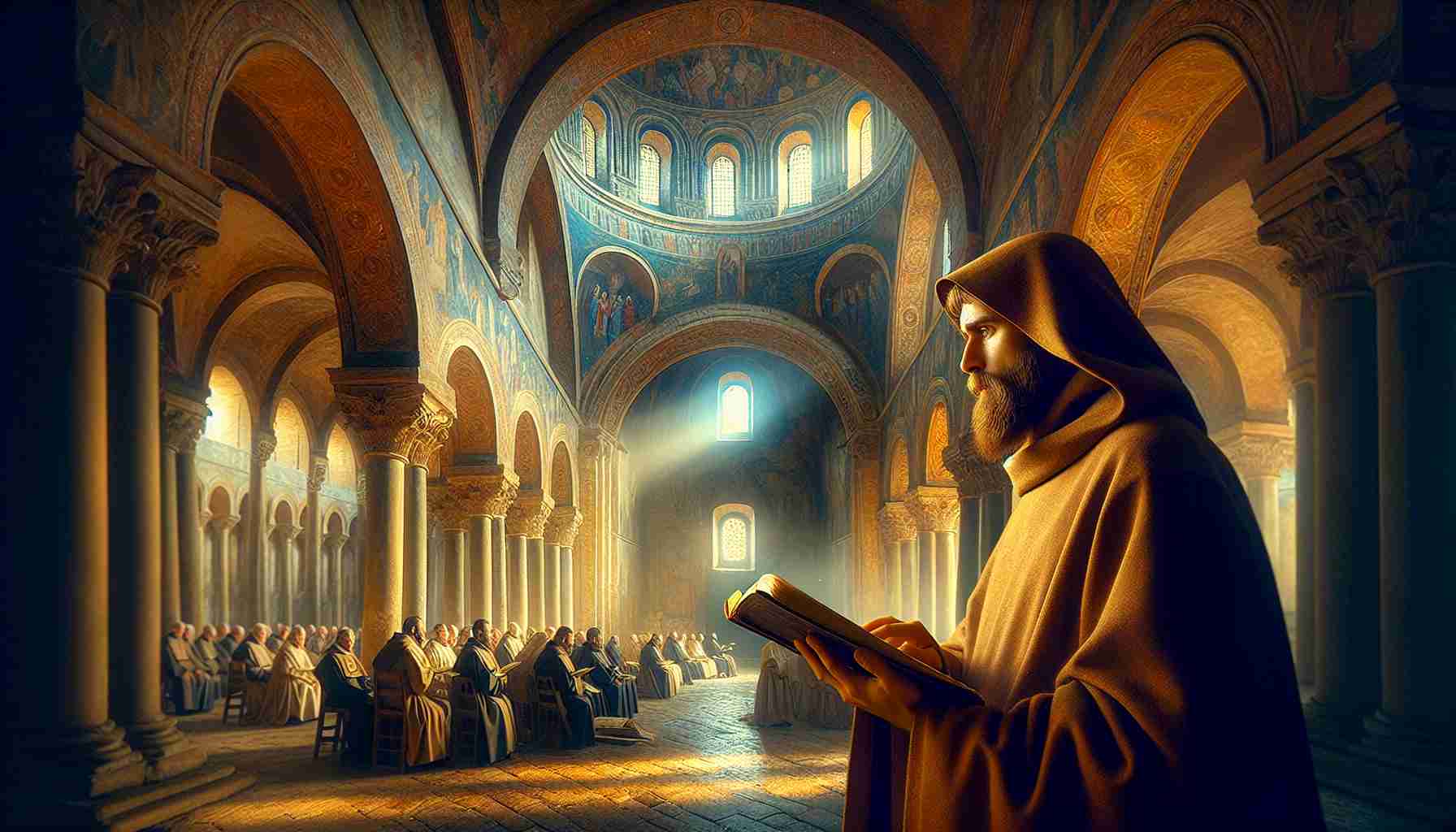

The early morning sun slanted across the stones of the Lateran Basilica, gilding the crumbling arches and the weary faces of Rome’s clergy gathered in silent anxiety. Dust clung to their worn habits, muffling even the solemn whispers that echoed beneath the apses. Outside, the city dreamed uneasily, stirring in the heat of a July already stifled with feudal unrest. It was the year 939, and Rome stood neither in peace nor power but held together by the ambitions of one man and the prayerful hope of her faithful few.
Alberic II, ruler of the Roman citizens, had summoned them. His seal commanded the election of a new pope—his chosen necessity in a world unraveling. The church’s true authority teetered, caught between swords and sacraments. Too many pontiffs had been pawns of palace schemes, lacking the spine to restore the sanctity of their office. Alberic sought no rival, only stability. In the cool shadow of the basilica’s apse, his gaze fell upon a quiet figure: Leo, a humble Benedictine monk from the Abbey of Monte Cassino.
Leo’s hands bore callouses not from swords or seals but from centuries of prayer, silence, and order. He had not campaigned, plotted, or pleaded. Yet the elders saw in him that which had become rare—authority grounded in faith, not faction.
That very day, July 13, he was elevated. The crowd outside received the announcement with a strange hush, as if Rome herself paused to wonder at what had been done. Leo VII, the monk-pope, had risen—not by intrigue but by the weight of his holiness.
From the moment of his enthronement, he moved not with grandeur but with gentle determination. He recalled the words of Paul to Timothy: “Let no one despise your youth, but set the believers an example in speech, in conduct, in love, in faith, in purity.” Though not young in years, Leo embraced the message. He ruled like a teacher among brothers, refusing to silence sinners with wrath but guiding them through faithful example.
Monks soon returned to Monte Cassino with letters of renewal. Leo encouraged reform in the monasteries of Germany and Francia, sowing seeds of revival that would outlive his fleeting tenure. Beneath the marble crucifix of San Giovanni in Laterano, he received the embassies of distant kings—not as a political operator, but as a shepherd discerning the voice of God amid the clamor.
Yet, Rome was no monastery. Alberic’s will still loomed, and Leo could not act without his consent. Some scorned the pope as a puppet, a gentle dove in a city of iron-beaked hawks. But Leo did not flinch. He knew holiness was not forged through resistance, but submission—to God, not man. In this, he found his quiet strength.
Once, a dispute arose between two feuding nobles whose armies beat swords upon Rome’s northern gates. Rather than issuing decrees or rallying guards, Leo walked barefoot beyond the walls, bearing no standard but the cross. He found the lords encamped with their banners taut in the wind. There, with the Book of Psalms in hand and a voice worn by prayer not power, he spoke of David’s mercy, of Solomon’s wisdom, and of Christ’s call to peace. It is said that by nightfall, the banners fell, not in blood, but in brotherly truce.
Still, his papacy ran not long—less than five years. Illness crept upon him, quiet as his own voice. In his final weeks, he refused the silken beds or jeweled rings. At dawn, they often found him kneeling on the cold stones of the Lateran Chapel, lips moving in silent recitation. He asked not for healing, only for fidelity.
Before his passing, he summoned the young deacons and novices. “Do not rise for power,” he whispered, breath thin. “Rise to serve. Lose your name in prayer, and the Lord will lift it up in His time.”
When Leo died, Rome made no great procession. The bells tolled with a sorrow unstrained by grandeur. He was buried in silence, beneath the Basilica where he had led not with command but with consecration. And yet, from that silence, reform stirred—monasteries grew, clergy turned again toward prayer, and pilgrims once again walked the Roman roads with hope.
To some, Leo VII was a cautious pope, overshadowed by men of louder wills. But to those who saw with the eyes of faith, he was something rarer still: a man who believed that in God’s kingdom, the quiet faithful are never idle; they are anchors in the storm.